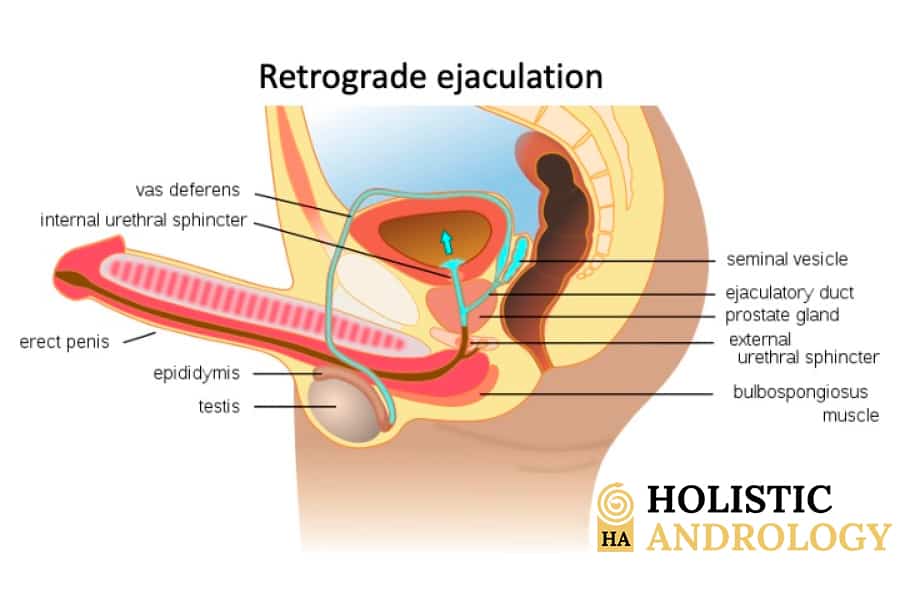Ejaculation disorders
Most of the time, ejaculation happens during orgasm, usually after the erection is over.
The emission of sperm from the meatus of the urethra—the orifice placed at the end of the penis—is a reflex process that occurs when sexual arousal exceeds a certain threshold and occurs in two phases: coherent and coordinated.
The first stage consists of the contraction of the internal reproductive organs (the vas deferens, prostate, seminal vesicles, and the inner part of the urethra). It occurs under the control of the autonomic nervous system. During this phase, called "emission," the various components of the sperm are "collected" and "transferred" inside the base of the urethra. This stage takes place immediately before orgasm.
The second phase (called the "ejaculation" phase) consists of the mechanism that allows the semen to escape through the urethra. The seminal fluid comes out of the urethra when the muscles around the base of the penis and anus contract in a rhythmic way.
Although two distinct phases can be defined, once the emission has taken place, it is tough for a man to retain the second moment of ejaculation voluntarily.
The sensation and situation of "inevitability of ejaculation" then occurs.
Ejaculation disorders include premature ejaculation, retrograde ejaculation, delayed ejaculation, and anejaculation (absence of ejaculation).
Delayed ejaculation
It is a sexual disorder of the orgasmic phase that is much less common than premature ejaculation, but its prevalence is increasing. It is defined as a persistent or recurrent delay, or absence of orgasm, after sexual stimulation adequate for localisation, intensity, and duration.
Usually, the erection is normal, and there is a desire to have an orgasm, but there is an inhibition of the ejaculatory reflex.
It can vary from the need for excessively long and energetic coitus to obtain ejaculation to complete anejaculation, a condition in which the man can never ejaculate into the vagina, with obvious negative implications when a couple wants to have children.

Men with delayed ejaculation may only be able to ejaculate in certain circumstances (for example, only during intercourse), or they may only be able to ejaculate with great effort and after long intercourse.
It can be primary or secondary, absolute (the patient can never ejaculate when he wishes) or situational. In most cases, the disorder's origin is psychological and linked to performance anxiety, fear of conception, or traumatic events associated with sex.
Many organic conditions can cause ejaculatory delay, especially multiple sclerosis, diabetes, Parkinson's disease, certain medications (antidepressants), drugs, a drop in libido, and benign prostatic hypertrophy.
Deliberately delaying ejaculation so the partner can get aroused or that the maintenance phase of the erotic reaction lasts longer shouldn't be seen as abnormal.
Retrograde ejaculation
A condition occurs when the bladder sphincter does not close appropriately during orgasm.
This happens especially to men suffering from diseases such as multiple sclerosis and diabetes, who have undergone prostate surgery (or interventions that have damaged the urethral sphincter), or who are taking particular drugs such as, for example, alpha-blockers (iatrogenic).
The sperm is emitted into the bladder, giving an anejaculation sensation ("dry" ejaculation). Seminal fluid will be ejected with the first urine after coitus.








